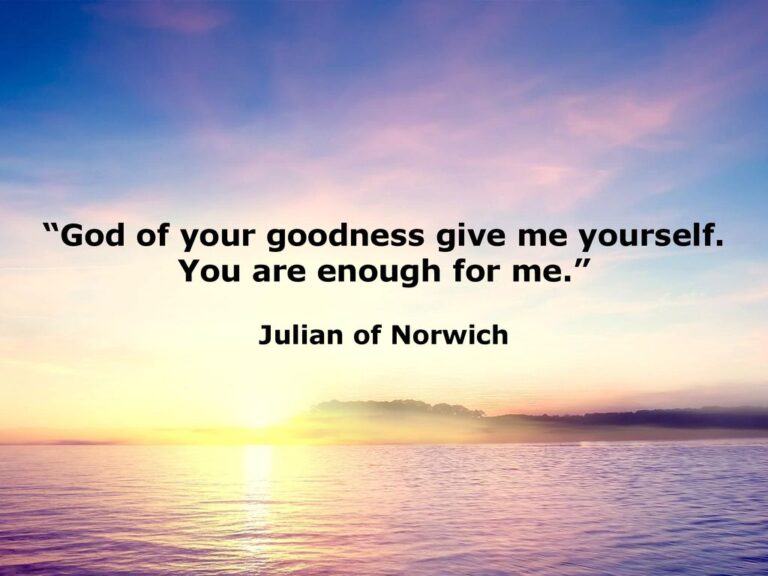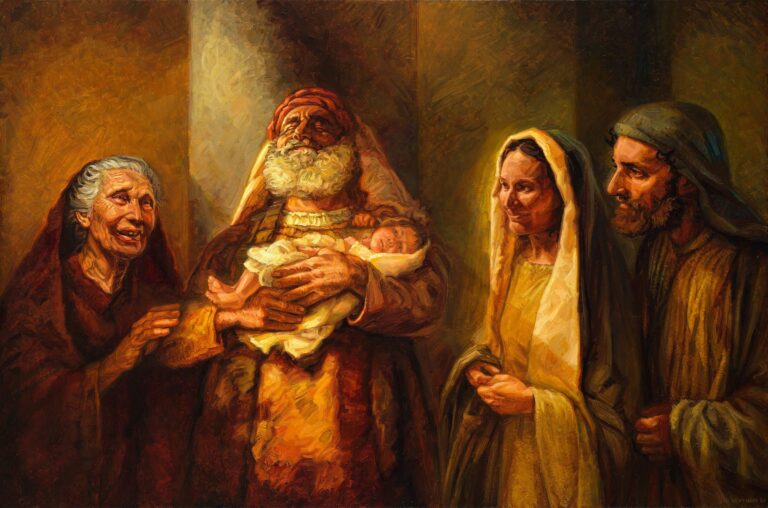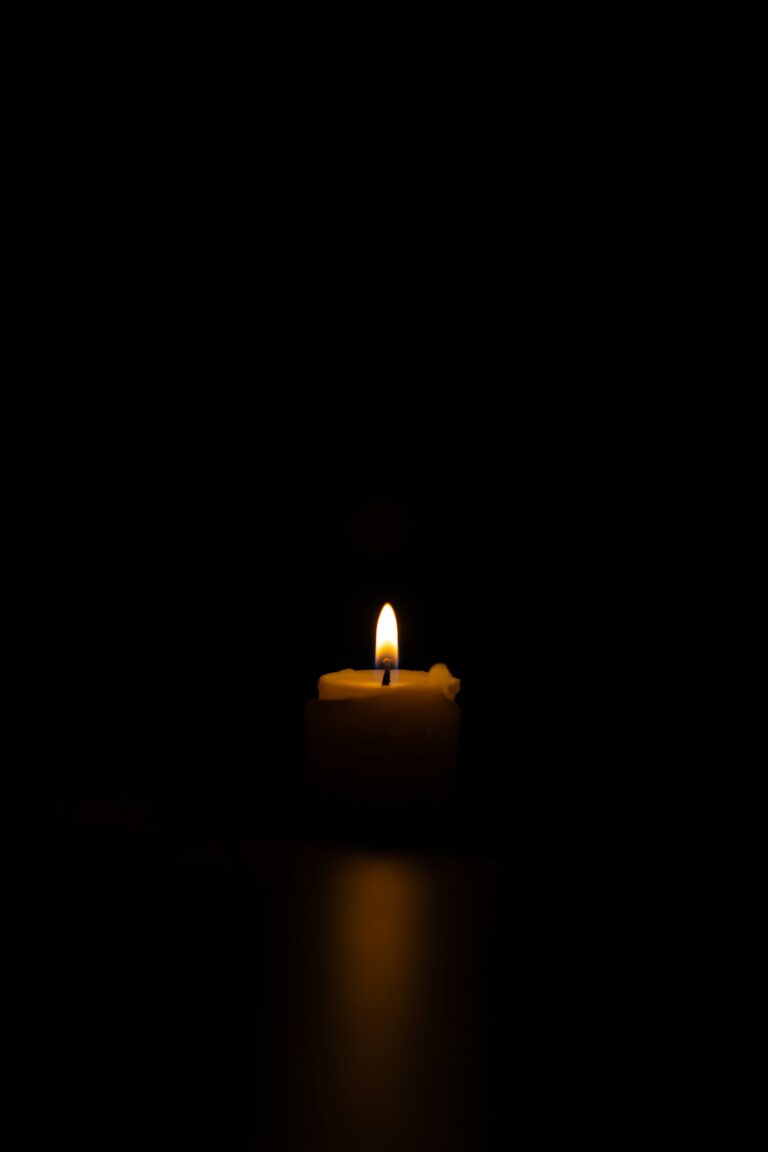| Chaplaincy
love was his meaning

I wonder if you have a spiritual hero? One of my spiritual heroes is a woman called Julian, who lived way back in the 14th Century. She wasn’t a great leader or speaker. She lived a very quiet life. We don’t even know her real name. But she wrote a book which has very profound things to say about life, and prayer, and God.
We don’t know anything about her early life, but we know that she nearly died on the night of 8th May 1373, 652 years ago today, and when she was on her deathbed the priest came to give her the last rites. During those hours she was given 16 visions – ‘showings’ she called them.
Julian survived, and she went on to become an anchoress. That meant being walled up in a ‘cell’ attached to a church – St. Julian’s church – that’s where her name comes from. She had three windows – one to the church, one to receive her food, and one on the street to give advice to people who came. She may also have had a cat.
There she thought about the ‘showings’ that she had received. She had written a short account of them, but now she mulled them over in the silence, and drew out their deepest meanings. And she wrote all this down in the first book written in English by a woman.
I first came across her in Norwich when I was working in the church there. I used to spend a quiet afternoon once a month in a little convent which overlooked St Julian’s and the rebuilt cell, and as I read more of her writings, I was swept away.
In a time of war and revolution and great anger, and in a church which taught people guilt and fear, Julian says ‘I found no anger in God’. God looks on us ‘with pity, not with blame.’ This is the God who welcomes us home joyfully, however we have strayed, like the father in our reading.
Faced with the question of our sinfulness, she says simply: ‘Sin is behovely, it has to be – but all shall be well, and all shall be well, and all manner of thing shall be well.’
We think that she was probably a mother, whose children and husband may have died in the terrible illness of the time, the Black death. She has a mother’s homely way of picturing God, who she sees as both father and mother to us. She says, ‘In his love he wraps and holds us – he enfolds us in love, and he will never let us go’.
Her sense of trust in God’s love leads her away from anxious, wordy prayers. She says that ‘the best prayer is to rest in the goodness of God, knowing that that goodness reaches down to our deepest level of need.’ And her own heartfelt prayer is this: ‘God of your goodness, give me yourself, for only in you I have all’.
You can find more about Julian online, read a selection of her writings (there’s a good one here) or read the whole book – it’s worth it!
Here is the very ending of her book, which sums up her message:
And from the time it was shown, I often asked to know what was our Lord's meaning.
And fifteen years after, and more, I was answered in inward understanding, saying this:
'Would you know your Lord's meaning in this? Learn it well.
Love was his meaning. Who showed it you? Love.
What did he show you? Love. Why did he show you? For love.
Hold fast to this and you shall learn and know more about love, but you shall never know nor learn about anything except love for ever.'
So was I taught that love was our Lord's meaning.
And I saw full surely that before ever God made us, he loved us.
And this love was never quenched, nor ever shall be.
And in this love he has done all his works.
And in this love he has made all things profitable to us.
And in this love our life is everlasting.
In our making we had beginning, but the love in which he made us was in him from without beginning.
In which love we have our beginning.
And all this shall we see in God without end - which Jesus grant us.
Amen.
You might like to send some time being quiet, remembering that ‘the best prayer is to rest in the goodness of God, knowing that that goodness reaches down to our deepest level of need.’
Simply rest in the goodness of God, allowing any concerns to surface, and handing them over to God.
God looks on us not with blame, but with love.
Before every we were made God loved us, and this love will never be quenched.
In his love he wraps and holds us – he enfolds us in love, and he will never let us go.
To end your prayers, you might like to quietly repeat Julian’s prayer:
God of your goodness, give me yourself, for only in you I have all.



